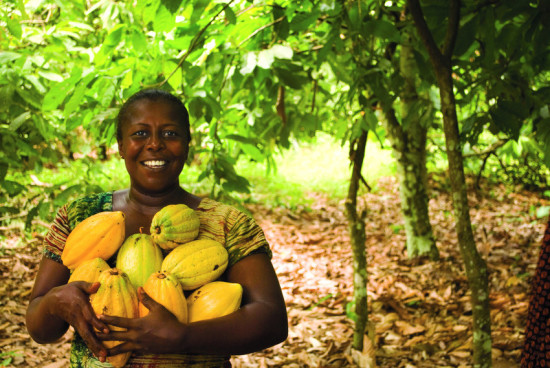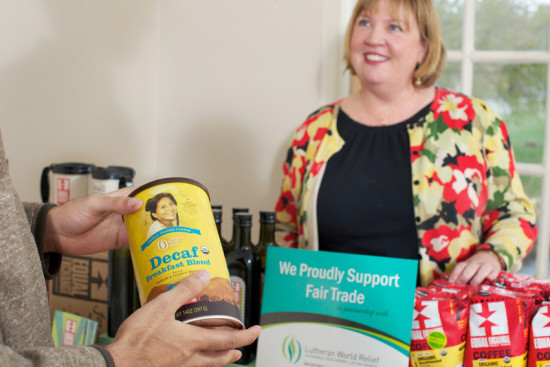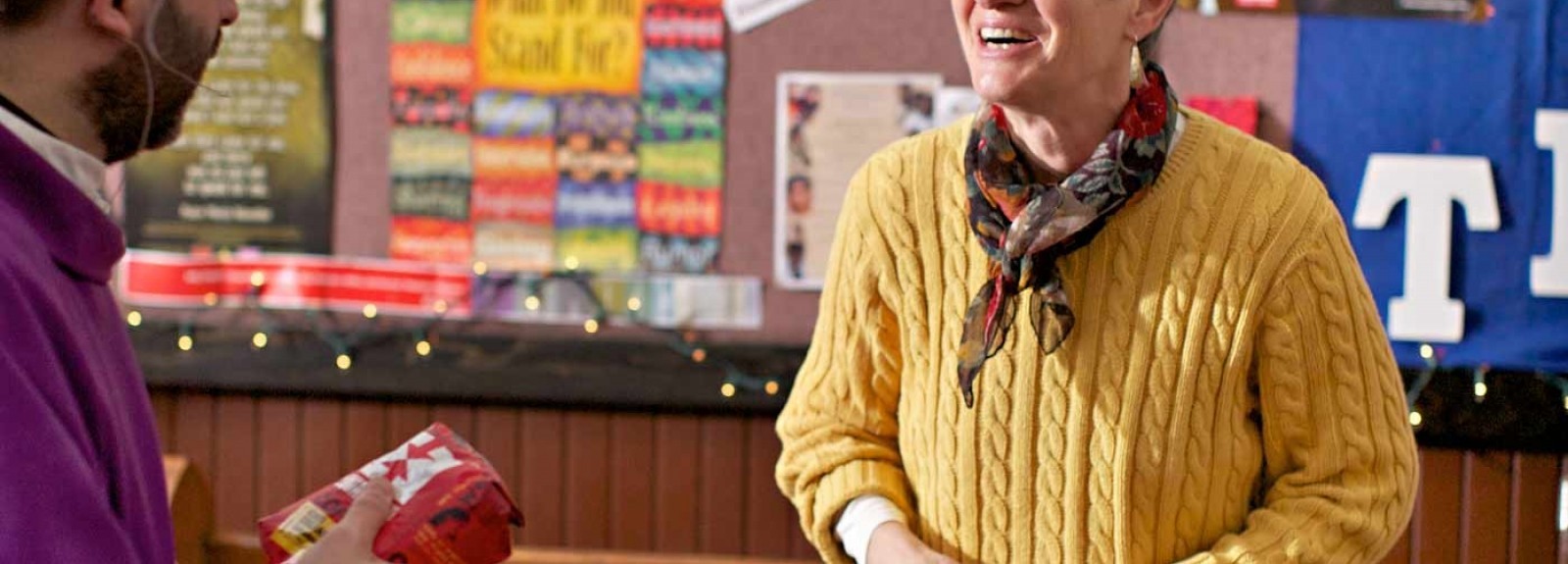The words “Fair Trade” get tossed around quite frequently these days. Maybe you look for and buy Fair Trade products at the store. You may have even participated in Fair Trade events – like sales in your congregation or a Fair Trade Fair during the holiday season.
But have you ever wondered…what exactly is Fair Trade? Why should you buy Fair Trade goods? Who benefits from it? And how exactly does it help people?
You’re not alone! Let’s investigate.
What is Fair Trade?
Let’s dig deeper into what the words “Fair Trade” actually mean.
Fair Trade is a method of global trade that benefits farmers and artisans in developing countries and allows consumers to purchase products that are made in ethical conditions.
At the heart of Fair Trade are principles of:
- fair prices and credit, so that farmers actually benefit from their hard work and are able to support their families and invest in their communities;
- ethical labor conditions, where farmers work for fair compensation in safe conditions, without being subjected to coercion, harassment or abuse;
- democratic organization, so farmers can independently come together to take advantage of access to markets and communal decision making;
- community development, so these self-organizing communities can make decisions to advance local interests; and
- environmental sustainability, which ensures that best practices to care for the creation and preserve the land are used by all farmers.
Fair Trade certification groups, like Fair Trade USA, Fair Trade America or Fair for Life, assure that goods are produced in ethical working conditions and that smallholder farmers receive a fair share of the revenue.

Fair Trade Values
Now that we have a better idea of what Fair Trade is, let’s talk about the goals of this method According to our partners at Equal Exchange, Fair Trade practices are designed to advance many goals for both producers and buyers, including:
- Raising and stabilizing the incomes of small-scale farmers, farm workers, and artisans – enabling them to support their families through their work
- Making sure those farmers, artisans and other producers – along with their communities – to see more of the profit from their hard work
- Allowing for the growth and support of democratically organized producer organizations
- Promoting safe and sustainable farming methods and working conditions
- Connecting consumers (just like you!) more directly with the people who make these products
In traditional systems of trade, there are many people between you and the farmer – middlemen, traders, importers. Each of those people takes a cut of the price of your product, making it harder for the farmer or producer to earn a sustainable income. Fair Trade seeks to empower farmers and producer groups and eliminate those people in the middle, connecting you more directly to the hard-working people who made your product.
Who Benefits from Fair Trade?
Short answer: everybody!
When you buy Fair Trade products:
- Farmers and their communities benefit from sustainable sources of income, along with funding for things like wells, schools or health centers.
- We benefit not only from the purchase of quality products, but also in knowing that we made a real and lasting difference for farmers and their families around the world.
How Do We All Benefit From Fair Trade?
The secret behind the power of Fair Trade - and especially LWR Fair Trade - is its emphasis on the democratic organization of small-scale farmers in local cooperatives to share in benefits of this movement. By joining together in these local co-ops, farmers have the opportunity to choose how to invest the premiums they receive from their Fair Trade “certified operators”, like Equal Exchange. Farmers choose where to invest these premiums back into their communities through projects like clean water systems, health clinics and school expansions.
By simply buying a Fair Trade chocolate bar, a community has the opportunity to have access to clean water, the choice to build a new school or health center, or funds to send a child to college. When you boil it down, it’s actually pretty straightforward. Fair trade is a movement toward a just exchange of goods. Fair trade seeks justice for your neighbor.

Why Should I Buy Fair Trade?
Bottom line: because by doing something you probably already do – enjoying products like chocolate, coffee and other goods on a daily basis – you can change the lives of farming communities around the world. By making the choice to buy items that are fairly traded, you are taking a stand against global poverty and seeking justice for your neighbor!


